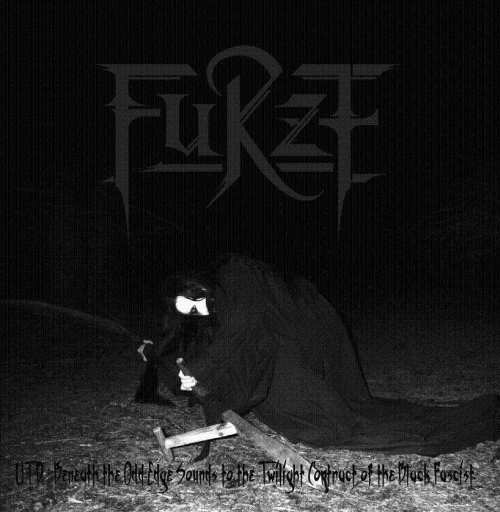Furze
UTD (2007)

UTD basically spits in the face of any talk of the traditions or blueprint surrounding how Black Metal should be played and written. Initially this sounds like a hyper-speed, sprawling mess, indeed an album without any method or form of coherency whatsoever. Due to this the production may come across as fairly 'wall of noise' but on further inspection it is actually very sharp, with all instruments able to be clearly heard in the mix. The music itself is quite angular in its construction, with frequently changing time signatures and full of choppy, experimental tremolo riffing.
One of the keys to decoding the ideas found within UTD lies in the use of the bass guitar as the pivot point from which the guitar moves around. The role of the bass is to provide not only the main melodic foundation for which the music is based, but it also ties everything together in terms of rhythm, groove etc. much in the same way as a bassist in certain forms of jazz music (not to say that there is any jazz found here except maybe outside of similarity in structure). Consequently the bass lines are mostly prominent in the mix (although in some of the faster sections with blast-beats they occasionally get buried) and the playing itself is expansive and often controls the frequently time signatures changes.
The nature of the bass playing lets the guitar jump endlessly in and outside of the general melodic flow of the music, improvising over or contradicting the 'main melody.' The allows for a free-flowing, completely decentralised approach to song-writing and aids immensely in Furze's ability to explore and re-arrange the foundations of not only (Black) Metal music but rock music as a whole. The music itself sounds like, but this description doesn't assist that much, a mix between the uglier elements of Darkthrone (and maybe some of the French Les Legions Noires), late 1960s psychedelic rock music (ie. very early Pink Floyd) and for some of the slower sections the spirit of Black Sabbath as heard filtered through some of the later noisier bands that adapted their style. The drumming is fairly loose and like in many one-man projects serves as an extra layer of intensity for the guitars (ie. blast-beats for the faster sections) and not much more.
Much like Jazz music is said to be "conversational" genre (due to constant improvisation of and re-writing of previous genre standards, Furze writes music that is playful in nature, which is an odd thing to say about a satanic metal band, but meant in the way of placing journey above destination. on UTD ideas are either kept for further re-arrangement or discarded if unsuccessful, like some kind of mad science experiment. The prevailing mood I get from it is like a thrill-ride through the depths of hell, only you are too washed out from all of the LSD to really fear the demonic surroundings rushing past you. And that comes from the trail-blazing attitude. No fear of failure.

Comments
Post a Comment